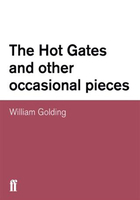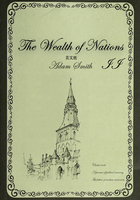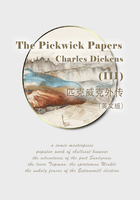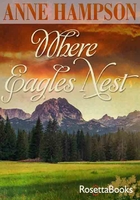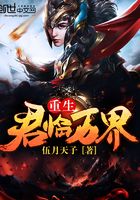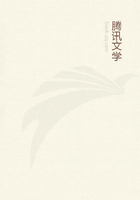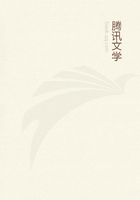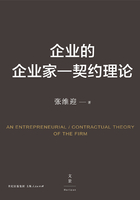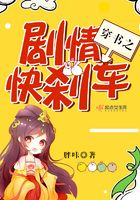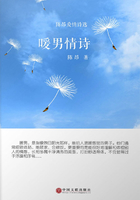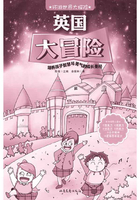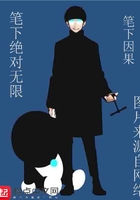And in the early morning when he had just about managed to fall into a troubled sleep-Lucy woke him up.
He was all curled up like a fetus in one corner of their bed. He jumped when she touched him. He jumped as if he'd been stabbed. He stared at her in terror. He wanted to shout at her-Don't you dare come near me! She was used to his nerves and she didn't know it was more than nerves now. She said-Breakfast-and she went out of the bedroom.
He lay back on the pillow and looked at the ceiling with hopeless resignation. He looked until his heart slowed down and his hands stopped shaking. He looked out of the window at the gray silence of another morning. Another day. Another collection of wracking hours.
The process began. His brain had hardly dragged itself from darkness. But it started to leave him. He couldn't control it. It thought everything he didn't want it to think.
There was the ceiling and there were the walls. Look at that crack in the ceiling. Suppose the roof gave. Suppose the attic with its dusty forgotten contents showered down on him. Suppose he were crushed as he lay there, the stored away relics breaking every bone.
Maybe the house would catch fire. Lucy was in the kitchen. She gets careless. A flame shoots out from the stove. Ignition. Conflagration.
He dressed and he was afraid. He might catch a germ from the clothes. The tie, the shirt, the coat might get caught in some machinery somewhere-who knew where. It might twist his flesh and cut off his breath, make his veins and arteries stand out in stark relief like pulsing tubes of blue spaghetti. His shoes might force a nail to grow back in. There might be poisoning in his system, blood rotting at the edges and flowing deep in congested waves.
He washed carefully and, when he shaved, his hand shook for fear he would cut his throat. He'd meant to get an electric razor. Why did he always forget? He looked in the cabinet. It was full of death. An unwary opening of bottles, a swallow and quick finish. He slammed the cabinet door shut and hurried out of the bathroom.
He descended slowly on the stairs so he wouldn't fall and shatter his body at the foot of the steps. His house was a trap, a snare set by himself and all the men and women who made it what it was. Shifting rugs and loose connections. Smooth floor and smoother bathtubs, burning radiators and fireplaces and furnaces. Broken glass and razor blades and splinters and sharp knives. Man built himself a home and filled it with menace. It was all right when you didn't think about it. But then something happened and you thought about it all the time.
At breakfast he wondered if maybe Lucy was poisoning him. She loved him. He knew that. She had married him and borne him two fine children. But maybe she was poisoning him. Maybe there was poison in the orange juice, sprinkled in with the salt and pepper and the sugar. Maybe he was packing death into his veins shouting-Here! Run riot in my blood!
He shuddered when she brushed against him. He was afraid for the children. And he was afraid of the children. They were his. He loved them with all his heart. He was afraid of them. Breakfast and supper on weekdays were agonies of wretched ambivalence. It got so he hated everyone at some time or another.
The subway station was very crowded. There were people lined up at the edge of the platform. The train whistled far away. They all shifted on their feet and moved closer to the edge. They touched him, pushed him, shoved him. He wanted to scream. They were trying to push him over the edge.
Suppose they did. Suppose the great steel mass slammed into him and crushed him to a pulp on the track, severed his limbs from his body, sent sprays of his blood into the air, splattered his organs on the black ties, coated the pillars with his flesh.
He wanted to yell, to strike out blindly, to fight for his life. But he was civilized. He was a modern. He was a man. He couldn't cry or shriek. He had to pretend he wasn't afraid. He must make-believe he was used to this-the surrounding of death in life.
The train was crowded. It was always crowded in the morning. The sweat trickled down his face and across his neck and down from his armpits. The people were packed against him. Packed people were death. Alone they were bad enough. In a mass, in a swaying dimlit mass, they were death itself. They mingled with each other, each of them joined with another and, all added up, they were crawling twisting death, all around him. Calling him, plucking at his clothes with flesh-tattered skeleton fingers.
He wondered if he should get off and take the local because there were always less people on the local.
But it was figuring like that that killed a man. Suppose he got on the local in order to avoid the crowds on the express. That day the local would have an accident. He knew it would. That was the way.
Then again, the local went under the river and the express went over it. If he was going to face death then he would rather it was on the express than on the local. Because it would be better to fall off the bridge. There might be a chance-just an outside chance-that he would get to a window and maybe swim up to the surface. He could see the light anyway. It would be better to see the light.
If there was an accident under the river he couldn't see anything. It would be pitch black. If the tunnel walls collapsed and the water rushed in, he'd be drowned in muddy torrential darkness. It would be dark because the electricity would short circuit. There would be people electrocuted and screaming and in the dark he could smell their flesh burning. He couldn't stand that. Water rushing up, up swimming over him, screams in the blackness and drowning. Floating corpses in the black tunnel filled with water. It would be better to go the other way.
He took the express. And the people pushed against him and the train got more crowded at every station. He couldn't bear to be touched by the people. He shrank away from them and tried to stand apart. How did he know that some of them didn't have awful diseases and if they touched him he might get the disease too? Heat made germs float around in the air. Invisible little bugs floating on coughs and everybody's breath.
He had to get away. There had to be somewhere. Everywhere he went there was death and he was afraid. He wanted to live. But death was everywhere. He couldn't get away from it.
At the office, he shivered at his desk. Suppose the building caught on fire and he was trapped. The flames roaring around and blisters and reddening skin and burning alive, horror-stricken screams. He couldn't bear such agony.
Suppose the building collapsed. He'd hear of such things happening. After all, he was placing his life in the hands of an architect and engineers and builders and how did he know they were trustworthy? How did he know some engineer wasn't mad at something and he didn't make the right figures and seams cracked and the building caved in. The huge beams would crush him. He'd be hurtled to the sidewalk. His head would pop on the concrete like an egg and his brains would spill all over the sidewalk.
He thought about these things all the time. He couldn't work. He sat and scribbled on pieces of paper and thought about dying. How could a man concentrate when he was always fearing? He wanted to live but he couldn't see how. Everything was against him. There weren't any percentages. Everywhere he went, death was waiting for him. He had nothing to say about it. It was going to happen and maybe in the next second. He couldn't alter it. All he could do was think and wonder about it and drive himself sick with worrying.
At lunch he thought that the waiter and the cook in the restaurant were conspiring to poison him. He couldn't eat the food. It choked in his throat. He ate little bits of it to see if he could taste any poison. He tried to dilute it with water.
Then he broke out into a cold sweat because it occurred to him that the water might be poisoned too. So he made the waiter bring him some water from the next table. He knew he was a fool for trying to trick the waiter. But he had to do it anyway.
All afternoon he wanted to scream and leap up from his desk and crash through the window. But he was afraid. He couldn't jump. He couldn't cry out-For God's sake, leave me be! He sat at his desk and shook with palsied terror. His brain teemed with many thoughts of the many ways a man can die each day. Each was more terrible than the one before. Each heaped its horror on the next until, after a while, he was no better than a helpless child whimpering in the night, fearing each sudden sound and movement. He hungered for peace and there was no peace. Terror was his only food.
When work ended at five, he had to go back to the subway. By that time he was gutted with horror and he stood dull-eyed and limp and was too weak to even shudder. Once more he went through the whole train of thought about the local and the express. It was like a separate litany in his brain. He couldn't stop it any more than he could voluntarily stop breathing.
At home he found the same threats waiting for him. He unlocked the door and stepped into the trap he had formed around him. He ate supper, hating and distrusting his wife and his children and even himself. Fear surrounded him like a shifting mist.
He was afraid of the house. He was more afraid to leave it. Lucy complained. But he wouldn't go anywhere. He sat in his chair quietly and clung to the arms and tried to keep from screaming. Then his mind began to pick out sounds and he began to feel death walking in his house, watching and waiting for him to make one slip, one incautious move.
He wanted to live!
He wanted to live in peace and quiet but they wouldn't let him.
He went to bed early because there was no comfort in waking.
He tossed and turned alone. Lucy would not go to bed so early.
She stayed downstairs and read.
He tried to think of nothing. But his mind would not blank itself. It went on and on. The roof was cracking, the floor was giving, the house was on fire, his system ran with poison, he was sick with infesting germs, there was a prowler with a gun, there was a mad dog outside the door, Lucy was sneaking up the stairs with a butcher knife.
He turned and screamed into the pillow so no one could hear his madness ringing out in the night.
Later he drifted away.
He dreamed the same dream over and over. The falling object, the ugly mushroom of billowing smoke, the spray of burning fire. He writhed with agony as it covered him. There were people watching. Lucy-he screamed-Lucy kill me, please kill me. I can't bear the pain. Please, please kill me.
She laughed at him. His children laughed. Everyone passed him by and laughed.
He was in torture. His body flared up. It was a white hot coal. He screamed from the pain. But they made him live. Live, live!-they cried. It was a chant in the night, a taunt from the blackness of dreaming. Death would not come then and take away the pain. It stood and watched but it would not come close. Live, live!-it laughed out loud.
He cried, he screamed and woke up to find himself sitting in bed and staring at the night.
The same nightmare?-said Lucy.
Yes-he said.
He sat up for an hour. Then he fell back in a stupor of weariness. He closed his eyes and prayed for a dreamless rest.
And in the early morning when he had just about managed to fall into a troubled sleep-Lucy woke him up.

